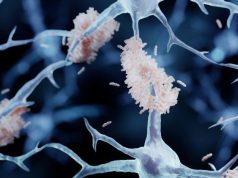Findings seen for unmedicated youths with anxiety disorder who have normalization over the course of treatment
By Elana Gotkine HealthDay Reporter
THURSDAY, Feb. 1, 2024 (HealthDay News) — For unmedicated youths with anxiety disorder, activation in fronto-parietal networks may normalize after cognitive behavioral therapy (CBT), according to a study published online Jan. 24 in The American Journal of Psychiatry.
Simone P. Haller, D.Phil., from the National Institute of Mental Health in Bethesda, Maryland, and colleagues examined the brain mechanisms associated with symptom change following CBT among unmedicated youths diagnosed with an anxiety disorder. Participants underwent 12 weeks of CBT as part of two randomized clinical trials. Before and after treatment, a threat-processing task was completed by 69 youths with anxiety disorder during magnetic resonance imaging. During the same time span, 62 age-matched healthy comparison youths also completed two scans. The stability of anxiety-related neural differences was tested in the absence of treatment in an additional sample of 87 youths at temperamental risk for anxiety.
The researchers found that across all task conditions, patients with an anxiety disorder exhibited altered activation in fronto-parietal attention networks and limbic regions relative to healthy comparison children before treatment. During the course of treatment, fronto-parietal hyperactivation normalized, while limbic responses remained elevated following treatment. In the at-risk sample, regions showing stable associations with anxiety over time and regions showing treatment-related changes had overlapping clusters.
“The data from this study reveal neural mechanisms that change following the acute effects of CBT for pediatric anxiety, as well as potential subcortical and cortical targets that remain dysfunctional after 12 weeks of CBT,” the authors write.
One author reported ties to various medical organizations.
Copyright © 2024 HealthDay. All rights reserved.








